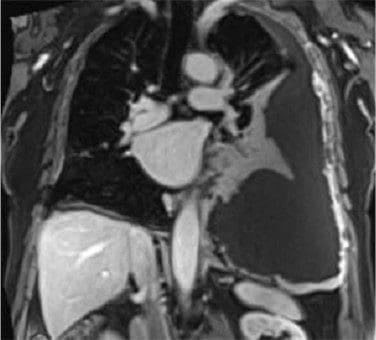PREDICT-Meso:
Pre-malignant Drivers Combined with Target-drug Validation in Mesothelioma
PREDICT-Meso is an International Network of researchers interested in the study of Mesothelioma, an incurable cancer most commonly affecting the lining of the lungs and caused by exposure to asbestos fibres.
Mesothelioma is preceded by decades of pleural inflammation providing a window of opportunity for precision prediction and early treatment that the Network wishes to explore. Together the teams hope to better understand how mesothelioma develops from its early stages and translate this into more effective diagnosis and treatment for patients.
PREDICT-Meso is funded for £5million across 6 years by the Accelerator Awards. The Accelerator Awards are funded through a partnership between Cancer Research UK (CRUK), Fondazione AIRC (AIRC) and Fundación Científica de la Asociacion Española Contra el Cáncer (FC AECC) and seeks to maximise impact through shared priorities.
The PREDICT-Meso project is comprised of expert mesothelioma researchers from across the world and is arranged into 5 work-packages designed to collect and utilise human tissues and data to design new therapies and early detection tests for Mesothelioma.
The Accelerator Award enables team science. It supports the creation of high-quality tools and resources that will unlock new research into unanswered questions about cancer.

Objectives
Scientific aim
To build matched benign-mesothelioma tissue cohorts, technologies and infrastructure needed to design effective mesothelioma therapies and evaluate these in future human trials
Key scientific questions
1. How does asbestos-driven chronic inflammation evolve into mesothelioma? What are the key
molecular events and their associated vulnerabilities?
2. Can individuals destined to develop mesothelioma be identified at a pre-malignant stage and
therefore recruited to future intervention studies using validated response tools?
Network aim
To build a Worldwide Network of mesothelioma researchers who collaborate and share knowledge and data – helping to maximise the yield of knowledge and data gathered from individual studies to better inform the overall understanding of mesothelioma.
Why
Mesothelioma is an incurable cancer that develops many decades after inhalation of asbestos dust and fibres.

Mesothelioma is an incurable cancer that develops many decades after inhalation of asbestos dust and fibres. Few treatment options exist, and unfortunately most patients die within a year. A long latent period after asbestos exposure is common (30-50 years), characterized by chronic asbestos-driven pleural inflammation, but the factors that promote or permit mesothelioma evolution are poorly understood.
Critically, mesothelioma may be preceded by a benign manifestation of pleural inflammation known as Asbestos Associated Pleural Inflammation. This presents with a fluid collection in the chest, which requires drainage and biopsies to exclude mesothelioma.
With the UK incidence of mesothelioma currently the highest in the world, global death rates rising rapidly (currently 43,000/year) and an epidemic predicted in the BRIC countries (Brazil, Russia, India, China) there is an urgent need to accelerate research, particularly in relation to target identification and drug development.
Accurate risk prediction and response tools are also required to deliver effective early intervention trials.
For more information on mesothelioma please check out Mesothelioma UK
How
The PREDICT-Meso Network aims to develop new research tools, resources, and infrastructure to support current and future mesothelioma research, including:
A website for data and knowledge sharing
A PREDICT-Meso specific Research Tissue Bank for sample collection, storage and access
New patient derived cell lines
Target-drug combinations and screening
Mouse models
Clinical studies
Development of an AI algorithm for automated tumour scoring
Links with BRIC countries (Brazil, Russia, India, China)- where asbestos is still widely used
Meso-ORIGINS is an ambitious study to try and define in vivo the key biological events that drive or permit evolution of mesothelioma, and subsequently allow development of more effective treatments and earlier interventions for the disease.
Meso-ORIGINS will recruit patients with benign asbestos associated pleural inflammation and follow their progression over 2 years, collecting repeat tissue samples in the minority who develop mesothelioma, and a sample of those who do not.
Creating these unique matched benign/mesothelioma tissue pairs and aligning these with world-class pre-clinical research, will allow us to define the driving (oncological) and/or permissive (immunological) events involved in the development of mesothelioma.
This data will the influence testing of targeted drugs and hopefully help us define better treatments for mesothelioma.
For more information of the Meso-ORIGINS study, please see the Meso-ORIGINS page.
An aim of the Network is to collaborate and share knowledge and data – helping to maximising the yield of knowledge and data gathered from individual sites and studies to better inform the overall understanding of mesothelioma. The Network has already expanded beyond the initial project application members in the UK, Spain, Italy and Belgium to include new members from the US, Canada, and Brazil, with more exciting new collaborations on the horizon.
If you are interested in finding out more or wish to join the Network, please see the Network page for details.
Work Packages

WP1 - Network and Cohorts
WP1 will coordinate the Network, coordinate the clinical study Meso-ORIGINS and build the tissue cohorts.
WP2- Target Identification
WP2 will focus on target identification through genomic, epigenomic, transcriptomic and immune profiling of matched benign/mesothelioma tissues from WP1.
WP2 is divided into 4 sub-work packages
- WP2.1 Whole Exome Sequencing, co-ordinated and analysed at University of Glasgow
- WP2.2 High-throughput DNA methylation arrays will be performed at the Josep Carreras Research Institute (IJC) in Barcelona
- WP2.3 RNA Sequencing will be performed and analysed at the Vall d’Hebron Institute Oncology (VHIO), in Barcelona
- WP2.4 Immune landscape mapping at the CRUK Beatson Institute
WP3- Models and Drugs
WP3 will:
a) generate and characterise new in vitro/vivo models (cell lines, organotypics, patient derived xenographs (PDX)) using material from WP1,
b) validate a genetically engineered mouse model (GEMM) that combines target genes with asbestos exposure
c) perform candidate drug screening
WP4- Target Drug Validation
WP4 will validate target-drug combinations generated by WP3 in organotypics and in vivo using the GEMM, and will include an exemplar project involving the HMGB1 fragment, BoxA
WP5- Risk and Response
- WP5.1 will focus on risk profiling using non-invasive multiomic data from WP1- radiomics, proteomics and metabolomics – for risk prediction models
- WP5.2 will focus on response markers by leveraging existing infrastructure to build critical serum cohorts (working with ASSESS-meso) and AI imaging cohorts (working with NCIMI –project MesoQ)
